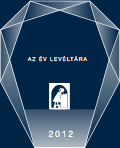You can register as a researcher of Budapest City Archives (BFL/BCA) (and/or the National Archives of Hungary, MNL/NAH) online at the Digital Archives Portal: www.eleveltar.hu.
You can change the language of the page from HUN to ENG in the upper right corner.
To register as a new portal user and researcher, first click on the “Sign up” button in the upper right corner.
Fill in the fields of the form. Note that “last name” is the first field and “first name” comes afterwards. Please use a personal e-mail address which is used only by yourself. Choose a password which is at least 8 characters long, contains lowercase letters, uppercase letters, and numbers. Tick in the checkbox for the archive you want to be a researcher of: at this point three (or in the case of choosing both archives: four) further steps will be added to the registration process. The verification code and the acceptance of the privacy statement is necessary to continue.
If you have chosen any of the archives for researcher registration in the first step, you should provide further personal information in the next step. Fields marked with an asterisk (*) are required, except for the “Last name at birth” and “First name at birth”, which are necessary only in case your birth name differs from your actual name.
In the following step(s) you should provide information about your research. If you have ticked off both archives, the MNL/NAH registration form will come first, and the BFL/BCA form afterwards. As “subject of the research” you should provide your general topic, e.g. family history, architectural plans. As “time of creation of the documents” it is enough to give a broader interval, even centuries, you do not have to be more exact than that. Please also choose the type of your research and accept the Researcher Statement. The subscription at the end of the BFL form is not necessary: the e-mails we send are usually about the change of opening ours of our research room, in Hungarian.
After you click on the “Send” button in the last step, you will receive an e-mail with the activation URL needed to complete your registration. This URL should be used within 24 hours, and it works only once. After the successful activation, you can log in to the portal, but you will not be able to submit your document requests yet: to become an active researcher, a manual confirmation is needed from the archive, which will be done during the opening hours of the Researchers’ Service. After this confirmation is done, you should log in again so your researcher status can be updated.
If you need further help with the registration, feel free to write to the Research Enquiry of the Archive’s (kutato@bparchiv.hu).
Following the online registration, in the event of your first visit in the Archives you need to sign the paper form as well as to present the identification documents.

